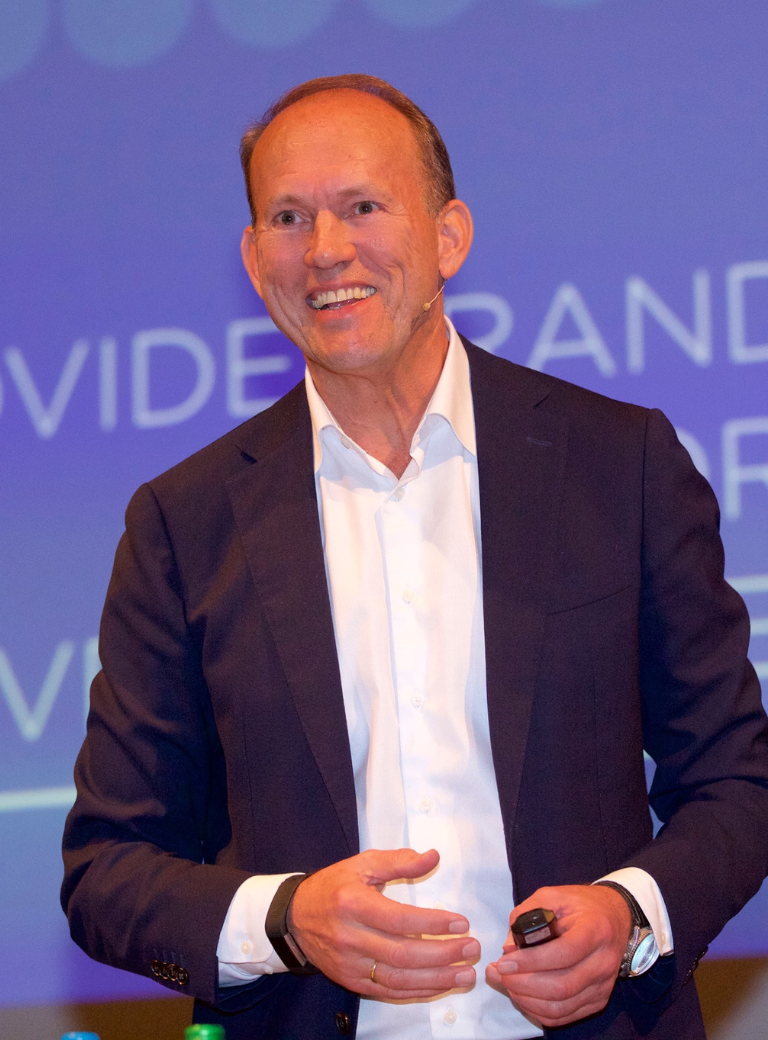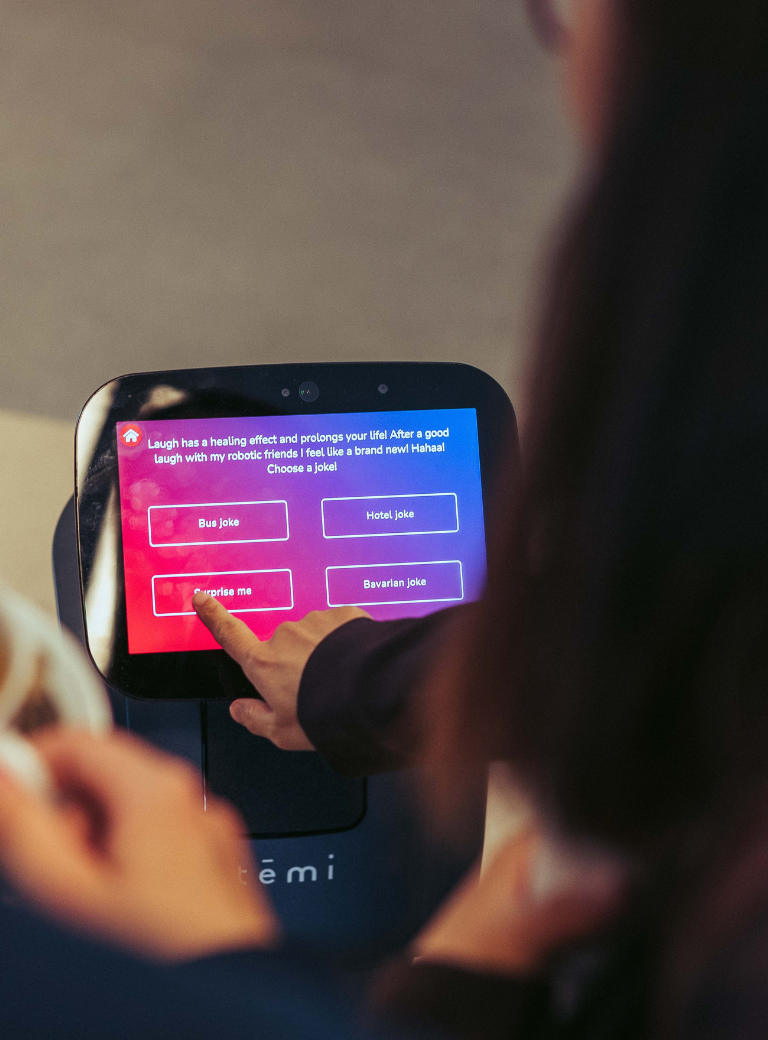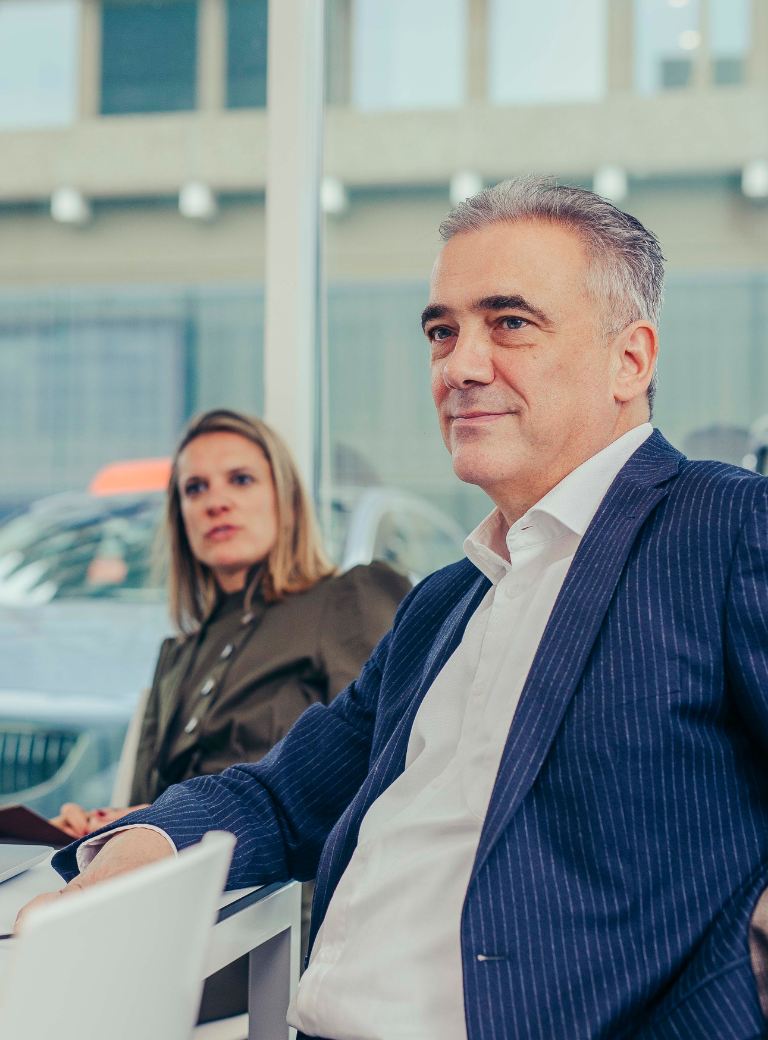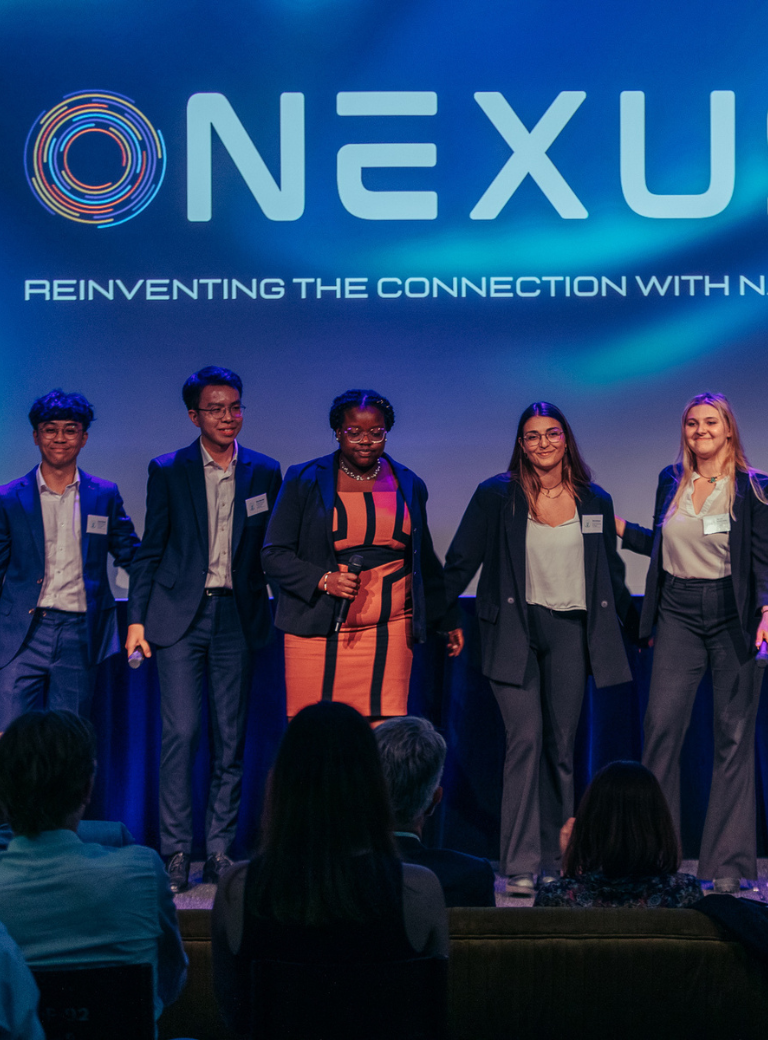
From marketeer in the energy industry to professor Technological Innovation at HTH

Meet Dr. Alexander Lennart Schmidt, Professor (Lector) of Technological Innovation at Hotelschool The Hague.
Alexander Schmidt is an academic and entrepreneur with a strong passion for innovation. Since July 2022 he has been part of Hotelschool The Hague as Lector of Technological Innovation. Building upon his academic experience as a Lecturer of Innovation and Entrepreneurship (Hotel Management School Maastricht, the Netherlands; FH Münster, Germany) and Research Associate (Science to Business Marketing Research Center, Germany) Alexander is now lecturing topics such as digital transformation in hospitality while researching digital technologies in the industry.
Recently, we sat down with Alexander to discuss his professional background, digital innovations, disruption, and hospitality.
Tell us a little bit about your educational and professional background.
Originally, I started with General Business studies in Germany and specialised in Marketing and Sales with an international perspective. While following my Master studies, I was still working in Sales and Marketing in the energy industry. As I was working at a big corporate organisation, where I was responsible for digital transformation projects in marketing and sales, I realised how burdensome it is for big corporations to bring their business into the digital world. I wanted to understand why it is so difficult for big organisations to transform, and why startups often are more successful in transformation. With these questions in mind, I jumped on the opportunity to complete my Ph.D. at the Science, Business & Innovation department at the VU University in Amsterdam to further develop the knowledge base on managing disruptive business models.
How did you end up in education in the hospitality industry?
When I was wrapping up my Ph.D., I studied the similarities and differences of disruptive business models across industries. As I was looking at multiple industries and how far they were in bringing about change based on digital technologies, I could not help but notice that the hospitality sector is an established industry with a lot of potential for change and innovation. So, I decided to build upon my knowledge of disruptive innovation in this sector by joining Hotelschool Maastricht. I taught innovation and entrepreneurship and co-created with students; something that I enjoyed a lot and continue now at Hotelschool The Hague.
What sparked your passion for innovation and entrepreneurship?
To this day, what keeps sparking my interest in innovation is that there are constantly new technologies emerging. There is Artificial Intelligence (AI), robots, the metaverse, you name it. However, these technologies cannot offer you anything if not wrapped up in an experience or a business model. As soon as you wrap up technology in such a way then you can perform change and disruption in an industry. And this is basically my motivation why I joined education and research.
I enjoy working with students, who are the next generation of change-makers. Based on my research I equip, facilitate, and inspire our students and industry partners in a process of co-creation.
Alexander Lennart Schmidt
What is a revolutionary example of disruption in hospitality?
There are two very famous examples of disruption in the hospitality industry that come to mind. The first one, and I would assume most of our students have used, is Airbnb; the big platform business that changed the availability of overnight stay options. When Airbnb entered the market, it was indeed targeting students because it offered air mattresses during festival periods. From that position, Airbnb grew further and further until today, when it is one of the biggest players. Another great example of disruption in hospitality is Booking.com. In fact, Booking.com changed the way distribution works in our industry. These are two examples that we all know of. The main question now is, what is going to be the next big thing? We do not have a crystal ball to predict the future. And the good news is that we do not need this crystal ball. My research underlines the importance of ‘perform instead of predict’ when it comes to disruption. What does that mean? We see that successful disruptors perform industry change independent of potential obstacles. Thus, instead of trying to predict the next big thing, I encourage our students to perform disruption. When you look at other countries you can already get an idea of what is possible. For example, China and other Asian countries have already many more technology-based hospitality businesses. There are hotels that are fully operated by robots while others combine a lot of digital technologies such as self-check-in, face recognition, or room service delivered by service robots.
We are currently doing a study where we investigate the impact of service robots on the guest experience during crucial touchpoints along the customer journey. For example, information provision during the check-in procedure; the first touchpoint when you enter a hotel. When this touchpoint is executed by a robot, we measure a negative effect on the guest experience. The basic reasoning is that, as a guest, you want to get an overnight stay where you feel safe and being taken care of. This cannot yet be achieved by service robots. At the same time, we measure an increase in guest experience when robots are implemented for supporting tasks like food delivery after a guest has placed an order. So, yes, guests are more and more willing to be served by robots – the question is at which customer touchpoints.
Is staff shortage in hospitality one of the reasons why hoteliers and entrepreneurs have implemented robots in their businesses?
If you think about it, there are actually two main reasons why new technologies such as robots are being implemented in hospitality businesses at the moment: staff shortage and COVID-19. On the one hand, staff shortage is indeed a pressing development in our industry, and you can see it across smaller and bigger hotels. Entrepreneurs are now more open towards the transition to digital solutions as they are searching for practical ways to get things done. Clearly, robots can facilitate and streamline processes like check-in, transportation of objects from A to B, or other repetitive processes. On the other hand, the high-paced adoption of these technologies is due to the pandemic as well. Businesses are requested to strictly follow hygiene protocols, social distancing, etc.; and service robots are a fitting solution.
These two streams have been big accelerators for service robots in the hospitality industry.
At the same time, those developments make us re-think a more creative vision of the future. We can now design totally new experiences that were not possible before. Think of autonomous hotels where there is no person at the front desk or personalised experiences based on AI, e.g. designing a completely personalised meal.
A lot is happening, but what we need to bear in mind is the challenge of finding the balance between technology and human experience.
Alexander Lennart Schmidt





